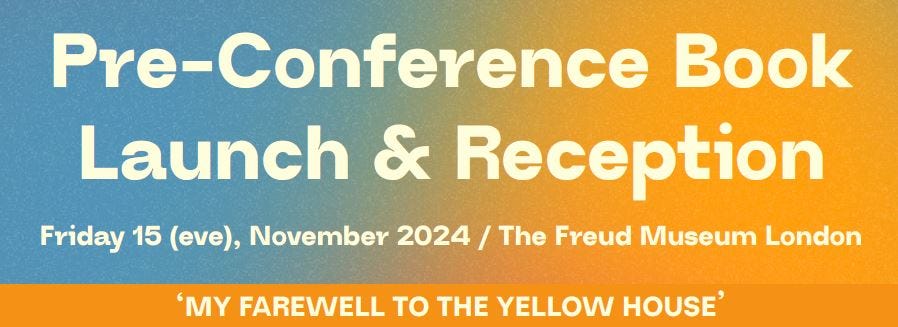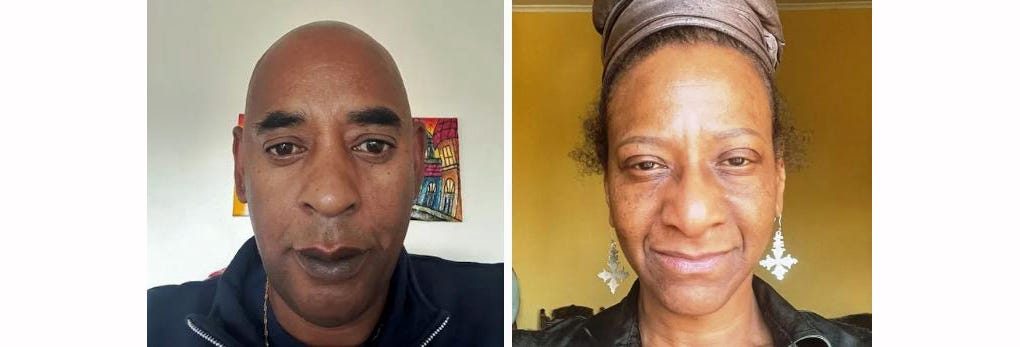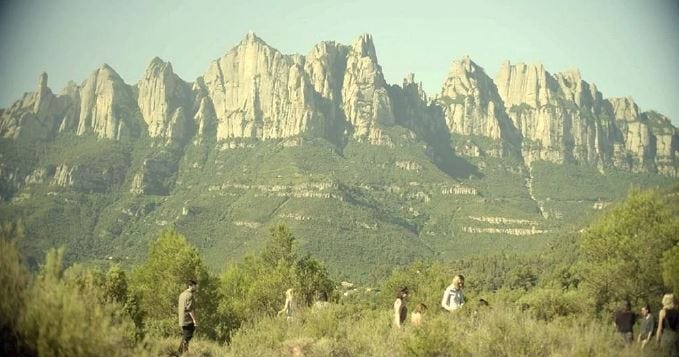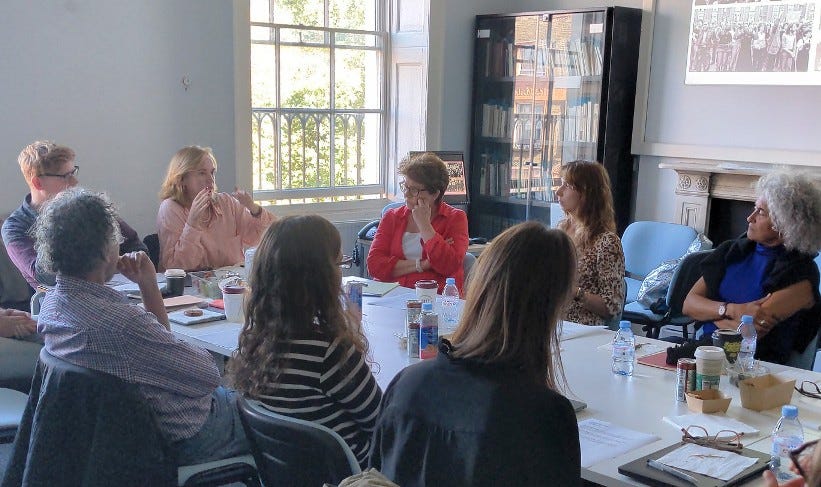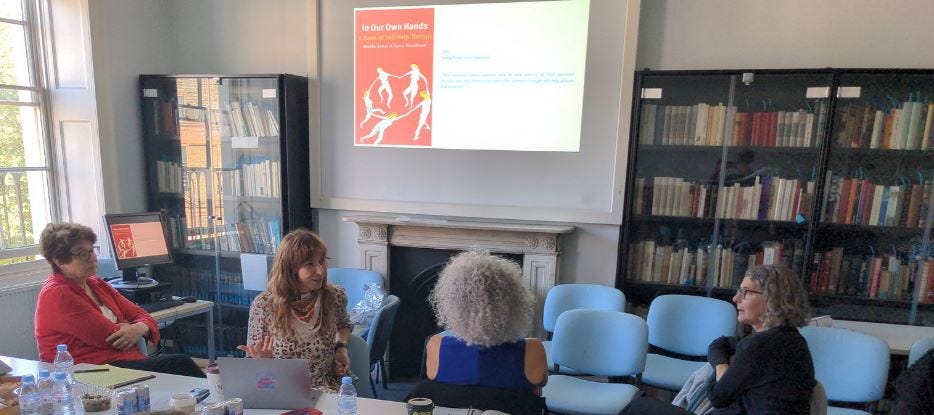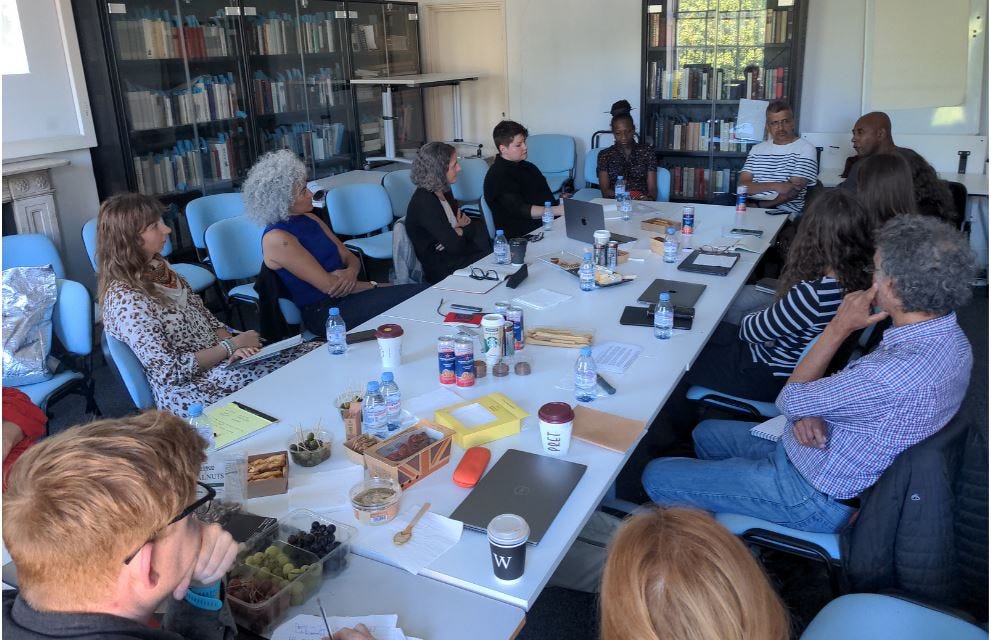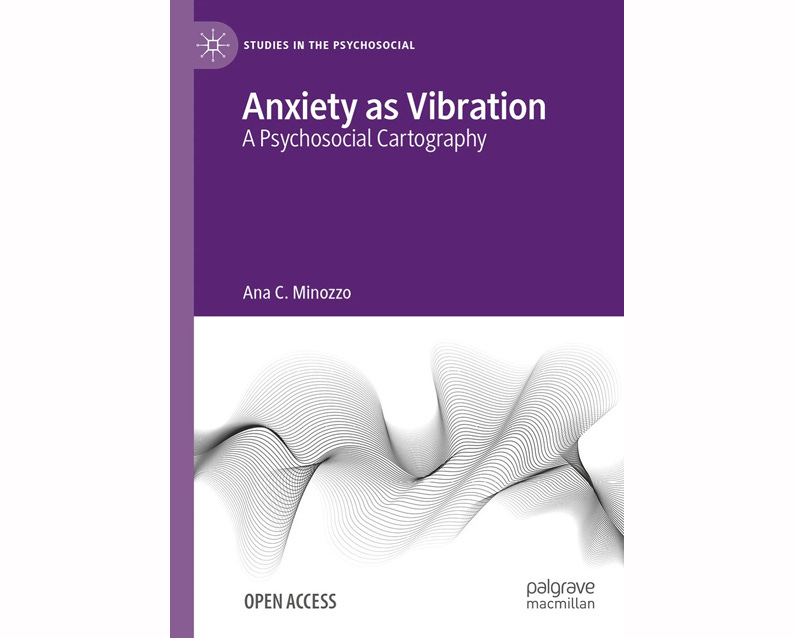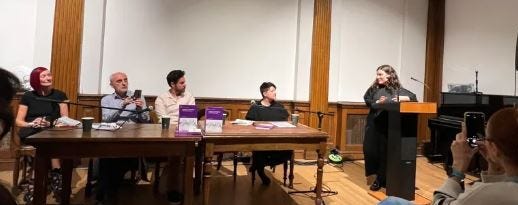FreePsy News 6 - Conference Issue
Welcome to the 6th FREEPSY newsletter!
This issue of the newsletter announces the full programme of the upcoming conference Psychoanalysis and Radical Psychiatry organised by FreePsy and the Psychosis Therapy Project (PTP) in London. Abstracts and speaker biographies can be found at the bottom of the programme entries. It also includes news of publications by members of the FreePsy team and a report on the second ‘Free Clinics Working Group’ held at Birkbeck College in September
Free Clinics and a Psychoanalysis for the People: Progressive Histories,
Collective Practices, Implications for our Times
Psychoanalysis & Radical Psychiatry
FREEPSY Conference 2024 - Programme
About the conference
Psychoanalysis was profoundly involved in rethinking the practical and theoretical bases of psychiatric care in the twentieth century. In doing so, psychoanalysts and psychoanalytic collectives have questioned some of the shibboleths of medical and psycho-therapeutic practice: the power relationship between doctor and patient, the representation of madness, and the role of psychiatric institutions in health and illness. This conference focuses on the lesser-known experiments, practices and theoretical underpinnings of the creative boundary-crossing between psychoanalysis and radical psychiatry.
In commemoration of the publication of the ground-breaking book ‘My Farewell to the Yellow House’ (1927) by psychoanalyst and psychiatrist István Hollós, we give a privileged place to the involvement of psychoanalysis in psychiatric care in Budapest of the 1920s and '30s, and aim to put ideas of the Budapest School in dialogue with other traditions of radical psychiatry, from France, England, Italy, the USA and Latin America.
The conference will bring together an interdisciplinary network of scholars and practitioners, including psychoanalysts, psychiatrists, psychosocial thinkers, artists, social theorists, historians, cultural theorists, art historians, film makers and archivists.
Friday 15th November 2024 / Freud Museum London
Join us either in person or online for an evening celebrating this exceptional book and its author István Hollós.
6pm - 7.30pm Book launch
7:30 - 8.30pm Reception at The Freud Museum with wine and canapés.
Please apply for separate tickets from the Freud Museum if you want to come to the book launch of ‘My Farewell to the Yellow House’ (1927) by psychoanalyst and psychiatrist István Hollós. ‘My Farewell to the Yellow House’ is an event-book: a manifesto that aims to rethink the practical and theoretical bases of psychiatric care. The launch will include commentaries by: Raluca Soreanu, Monika Perenyei, Mónika Takács and Antal Bókay (preface authors); Adrian Courage & Kristina Valendinova (translators); Graham Smith & Daniel Bristow (editors), Matt ffytche & Dorothée Bonnigal-Katz (guest speakers).
Book separately:
IN PERSON >> ONLINE >>
‘There is no such thing as “the mentally ill”. There are people.’ A jewel of a book – playful, idiosyncratic and full of pathos, combining the Budapest avant garde, the psychoanalysis of Freud and Ferenczi, and the radical insights of a psychiatrist dreaming the erasure of asylum walls. Dedicated to a social group without a society, living in an upturned world.”
Professor Matt ffytche, Department of Psychosocial and Psychoanalytic Studies, University of Essex, UK
Conference programme
Saturday 16th November
Wellcome Collection
9am – 9:15am Opening and Welcome
Raluca Soreanu & Dorothée Bonnigal-Katz
SATURDAY SESSION 1
9:15am – 10:30am
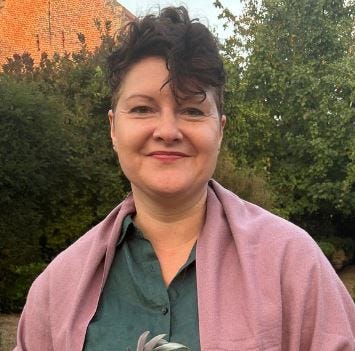
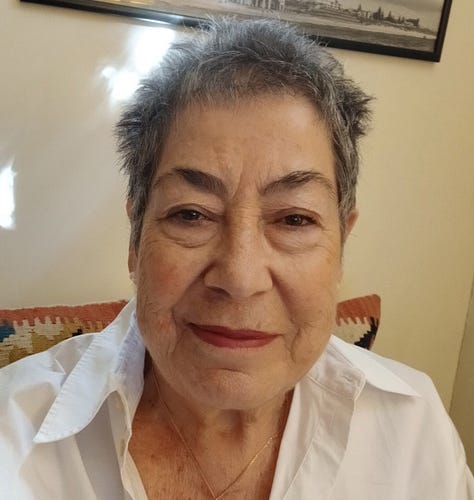
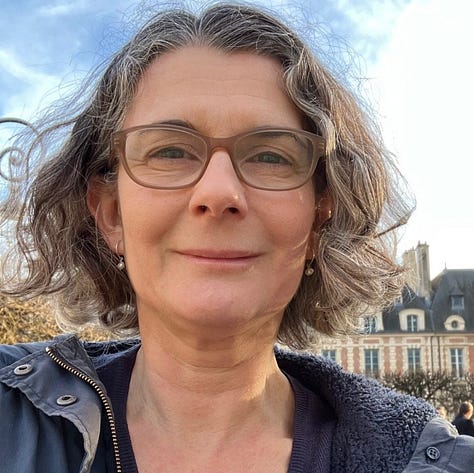
Haya Oakley
Was the British version of the so called “anti-psychiatry” movement a failed experiment, a utopian dream or a radical discourse changer?
Dorothée Bonnigal-Katz
Reflecting on 10+ years of Psychosis Therapy Project: Now what?
Discussant: Ana Minozzo
Chair: Barry Watt
10:30am – 11:00am BREAK
SATURDAY SESSION 2
11.00am – 12.00pm
Earl Pennycooke
Shades of the clinical and political in the analysis of racial trauma
Discussant: Dione Dalley (PTP)
Chair: Ivan Ward
Exhibition Opening & Commentary
12:00pm – 12:30pm
Artist Ana Čvorović & Curator Sacha Craddock
12:30pm – 1:30pm LUNCH BREAK
SATURDAY SESSION 3
1:30pm – 3:20pm

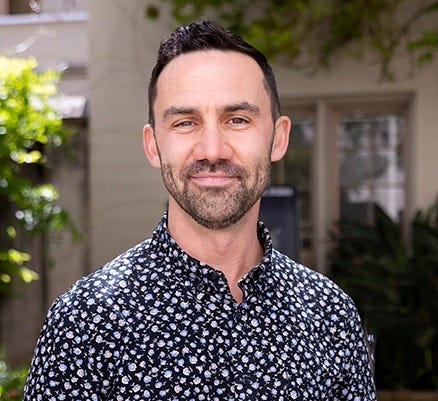
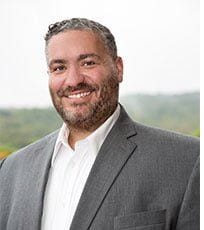
Camille Robcis
Institutional Psychotherapy and the Saint-Alban Experiment
Ramsey McGlazer
Basaglia Unbound
Gabriel Mendes
Fanonian Sociogeny and the Antiracist Psychiatry of Harlem, NY’s Lafargue Mental Hygiene Clinic
Discussant: Candela Potente
Chair: Alexander Miller
Archival material commentary
3:20pm – 3:40pm
Ewan O’Neill & Mónika Takács
3:40pm – 4pm BREAK
FILM SCREENING SATURDAY
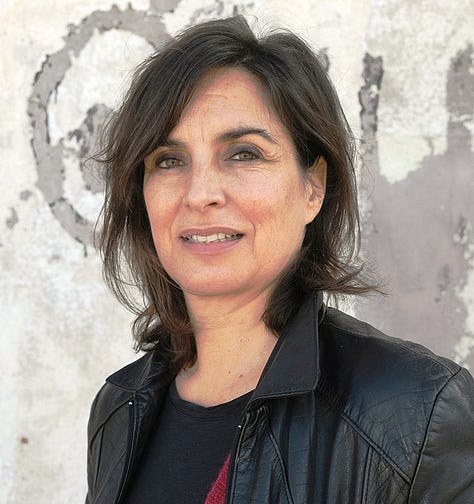
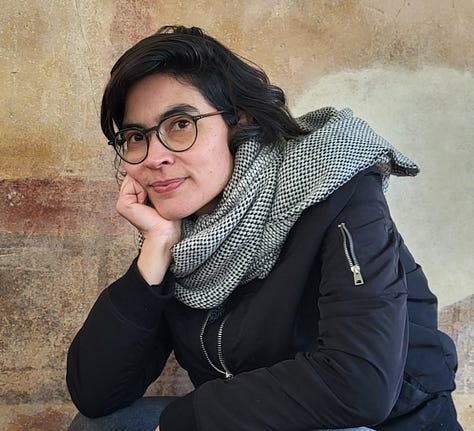

4pm - 6.15pm
Screening: ‘Història potencial de Francesc Tosquelles, Catalunya i la por’ [‘The Potential History of Francesc Tosquelles, Catalonia and Fear’] (2021) by Mireia Sallarès, co-written with Joana Masó, with the presence of Mireia Sallarès
6:15pm – 6:30pm break
6:30pm – 7:30pm
Film round-table discussion
Mireia Sallarès, Raluca Soreanu, Susana Caló and Magda Schmukalla
Sunday 17th November
Wellcome Gallery
SUNDAY SESSION 1
9:30am – 11:15am
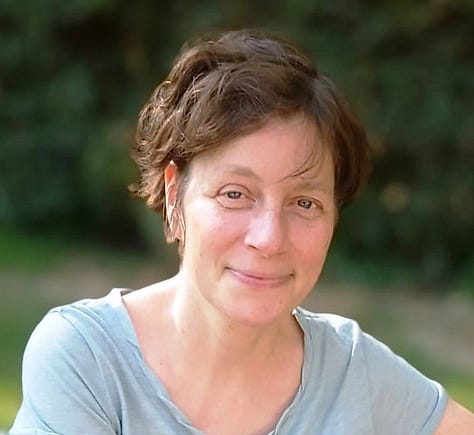
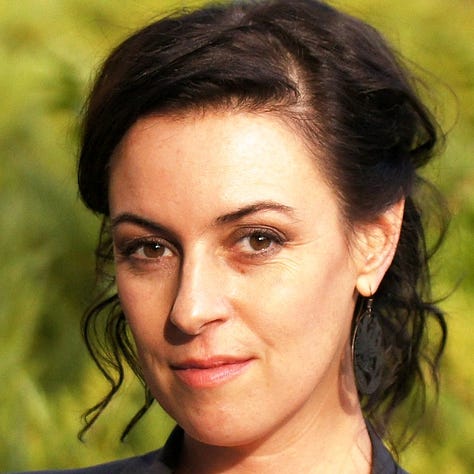
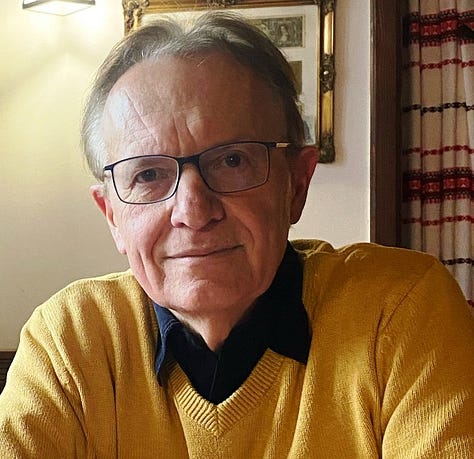
Anna Borgos
“He acted like Svengali, and I was Trilby.” Hysterical patients in Hungary in the light of early-twentieth-century medical records
Júlia Gyimesi
Critical Engagements with Psychoanalysis: Reinscribing Psychoanalytic Concepts in Light of Esotericism
Antal Bókay
Responsible Psychoanalysis: The enigmatic messages of the two versions of Ferenczi’s Psychoanalysis and Pedagogy
Discussant: Ana Tomcic
Chair: Raluca Soreanu
11:15am – 11:40am BREAK
SUNDAY SESSION 2
11:40m – 1pm
Susana Caló & Godofredo Pereira
Analysis Everywhere: On the research collective CERFI (Centre d’Études de Recherche et de Formation Institutionnelle)
Discussants: Lizaveta van Munsteren & Anderson Santos
Chair: Ramsey McGlazer
1pm – 2pm LUNCH BREAK
SUNDAY SESSION 3
2pm – 3:50pm
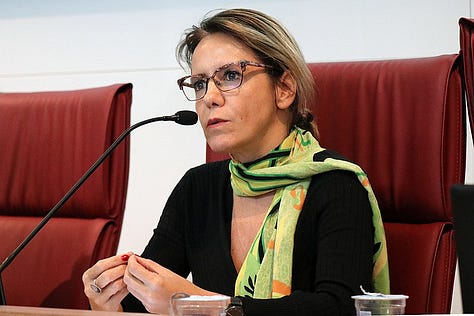

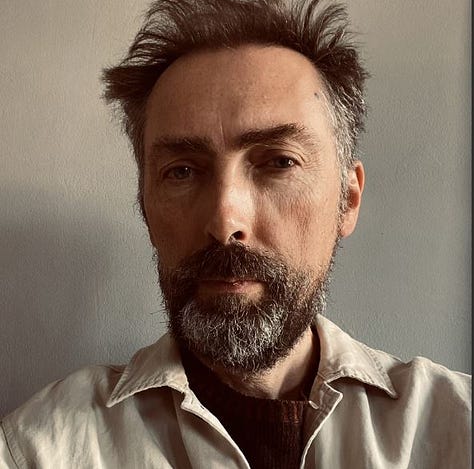
Tania Rivera
Turning inside-out the outside art: How an art atelier in an asylum has invented contemporary art in Brazil
Raluca Soreanu & Monika Perenyei
The Dream Album: The Album of the Angyalföld Museum and the Politics of Presentation of the Asylum in Interwar Budapest
Matt ffytche
The Life Left in Madness: The Notebooks of Aimable Jayet at St-Alban
Discussant: Magda Schmukalla
Chair: Lizaveta van Munsteren
3:50pm – 4:10pm BREAK
Final Conference Roundtable with All Speakers
SUNDAY SESSION 4
4:10pm – 5:30pm
Haya Oakley
Was the British version of the so called “ anti-psychiatry” movement a failed experiment, a utopian dream or a radical discourse changer?
Based on three decades of personal involvement with the Philadelphia Association, this paper will explore the path of the British “anti-psychiatry” movement, its theoretical origins in the Hungarian school of psychoanalysis and in continental philosophy, and its attempts to implement a radical change in relation to the representation and treatment of madness, psychiatric institutions and the nature of psychoanalytic training.
From Villa 21 to Kingsley Hall, and the therapeutic households of today to the Psychosis Therapy Project, I will examine the legacy of the British ‘branch’ of the movement and of Laing as its Iconic figurehead.
Dorothée Bonnigal-Katz
Reflecting on 10+ years of Psychosis Therapy Project: Now what?
This paper will attempt to identify and articulate the legacy of the PTP, a unique psychoanalytic project that has brought together a vibrant community of clinicians, trainees and service users. After a good decade of hard work and struggles, the PTP finds itself relentlessly split between crippling financial difficulties that obstruct the sustainability of the project and undeniable clinical achievements that confirm its vital relevance in the community. How can we reconcile this confusing contradiction? Is there a future for projects like the PTP in the current British political and economic landscape? If so, what kind of future is it?
Earl Pennycooke
Shades of the clinical and the political
Earl Pennycooke will discuss his work with racialised communities and account for the specificity of racial trauma both theoretically and from the perspective of his lived experience. He will argue that the reality of racism tends to be reduced to a matter of perception and misinterpretation rather than a harsh fact, thus preventing the validation and the understanding of the experience for the victims themselves. This persistent denial perpetuates the traumatic impact of racism and gets played out in psychoanalysis and society as a whole.
Camille Robcis
Institutional Psychotherapy and the Saint-Alban Experiment
My talk explores the ways in which institutional psychotherapy drew on Freudian and Lacanian psychoanalysis but also the ways in which it transformed their theory through their psychiatric applications. Focusing on the “Saint-Alban experiment” founded in the aftermath of the Second World War, I examine how the figure of François Tosquelles and his colleagues reread Lacan’s work and adapted it through their work with psychotic patients. For the founders of Saint-Alban, psychoanalysis ought to function not only as a complement to psychiatric medicine but rather as its bedrock.
Ramsey McGlazer
Basaglia Unbound
This talk revisits the work of Italian psychiatrist and social theorist Franco Basaglia (1924-1980) and reconsiders his relationship to psychoanalysis. Accounts of Basaglia’s career often culminate in the celebration of the good-enough reform that was the Basaglia Law (1978), which abolished asylums in Italy, expanding the process of deinstitutionalization that Basaglia had enacted on a smaller scale in clinics in Gorizia, Trieste, and elsewhere. Without denying the importance of this law, I return to Basaglia’s work with another set of questions in mind. Most scholarship on Basaglia has avoided the challenge of reading his works theoretically, treating them instead as relics of a past that has long since been buried. Reading psychoanalytically, I work to show that his theoretical work remains relevant, and that the time has come to reread this work in light of other critiques of the carceral state. I argue that the political struggles of the present—and in particular the struggle to abolish prisons and policing—can help us to read Basaglia’s work in a new way, to appreciate its salience and abiding significance, and to respond to it with something other than embarrassment, condescension, or lionizing affirmation. They can help us to reactivate Basaglia’s claims and to reinterpret the task that he called ‘institutional negation’.
Gabriel Mendes
Fanonian Sociogeny and the Antiracist Psychiatry of Harlem, NY’s Lafargue Mental Hygiene Clinic
‘Beside phylogeny and ontogeny stands sociogeny,’ declared Martinican psychiatrist and anticolonial catalyst Frantz Fanon, in his genre-defying 1952 monograph Black Skin, White Masks. This paper juxtaposes Fanon’s theoretical and clinical interventions with Harlem, NY’s Lafargue Mental Hygiene Clinic’s 1946 inauguration of ‘an experiment in the social basis of psychotherapy’ that identified and confronted racism as a public mental health problem. This paper’s main aim is to explore mid-Twentieth Century radical antiracist reckoning with the paradigmatic frameworks for explaining and addressing the fundamental determinants of human psychology and behavior.
Archival material commentary: Ewan O’Neill & Mónika Takács
We propose an exhibition of archival material related to the Budapest school of psychoanalysis from the collections of the International Ferenczi Center & Archives, Budapest. We will also introduce the nascent Free Clinics Archive that aims to trace, secure and preserve the histories of free clinics and the evolution of semi-autonomous collectives invested in the social mission of psychoanalysis.
Mireia Sallarès
Història potencial de Francesc Tosquelles, Catalunya i la por [Potential history of Francesc Tosquelles, Catalonia and fear]
The film appropriates a concept developed by Ariella Aïsha Azoulay to narrate the “potential history” of Francesc Tosquelles, a Catalan psychiatrist and refugee from the Spanish civil war who ran a hospital in the middle of nowhere during the Nazi occupation of France. Revolutionary politics from the 1930s opened the way to revolutionizing therapy. In extraordinary circumstances and with precarious conditions this was a moment of experimentation: socially, with the help of nuns and sex workers among many other people, and culturally, with the use of cinema and the avant-garde arts. This is a film about those who believed that psychiatry should not fear the insane. Because madness is not about others. It is about us.
Júlia Gyimesi
Critical Engagements with Psychoanalysis: Reinscribing Psychoanalytic Concepts in Light of Esotericism
Today, it is well-known that several esoteric theories and practices have either directly or indirectly contributed to the development of psychology. Esoteric currents also provided a breeding ground for the development of certain psychoanalytic theories, such as transference and countertransference, aspects of the therapeutic relationship, and the unconscious. This paper aims to provide a more detailed exposition of the influence of esotericism on psychoanalysis, especially taking into account the Austro-Hungarian context of the early 1900s. The innovations of Herbert Silberer, Sándor Ferenczi, and István Hollós will be illuminated. Research into the phenomena and literature of esotericism led these psychoanalytic thinkers to important discoveries. These discoveries shed radically new light on fundamental psychoanalytic concepts and highlighted the socio-cultural embeddedness of the individual as well.
Anna Borgos
“He acted like Svengali, and I was Trilby.” Hysterical patients in Hungary in the light of early-twentieth-century medical records
Hysteria arose and was described in a specific historical period and was key to the foundation of psychoanalytic theory. It reflects gender and social norms as well as the pathology/normality concepts of institutional psychiatry and psychoanalysis. My presentation will analyse early-20th-century hysteria cases from the Mental and Neurological Clinic of the Royal Hungarian Pázmány Péter University. The case histories, which include a detailed anamnesis and illness description, also provide a wealth of information on the patient’s living conditions, family and social relationships. They can also be read as a life story narrative, which, in addition to the voice of the doctor, sometimes also convey that of the patient. At the same time, apparently, the organic psychiatry of the time – unlike the Freudian “talking cure” –, although carefully recorded, did not take into account the patient’s life history and psychological background in the aetiology and therapy.
Antal Bókay
Responsible Psychoanalysis: The enigmatic messages of the two versions of Ferenczi's Psychoanalysis and Pedagogy
Sándor Ferenczi's first meeting with Freud in February 1908 marked his commitment to psychoanalysis. The visit to Vienna was so convincing for Freud that the young Hungarian doctor was invited to the international meeting, the first psychoanalytic congress in Salzburg. At this event, Ferenczi gave a lecture in German, which was later entitled "Psychoanalysis and Pedagogy". Surprisingly, Ferenczi never published the lecture in German, but only in Hungarian, three times between 1908 and 1910. The editors of the 1939 Bausteine publication had the manuscripts (both in German) of the published and unpublished versions but misleadingly mixed them into one text. Reading the two texts separately, it is possible to get a clearer picture of Ferenczi's early commitment to psychoanalysis with social responsibility. With my reconstruction and interpretation of the two versions, I try to get a clearer view of Ferenczi's position.
Susana Caló and Godofredo Enes Pereira
Analysis Everywhere
Our presentation will focus on the research collective CERFI (Centre d'Études de Recherche et de Formation Institutionnelle), founded in 1967. Emerging from the militant student movements that sprang from the struggles for Algerian independence in France and inspired by the experience of institutional psychotherapy at the Clinique La Borde, CERFI set out to explore forms of political militancy that would address capitalism's co-optation of the unconscious. We will present a series of projects in which CERFI was involved, ranging from the programming of childcare and educational equipment, to its participation in urban planning processes, to its research, modes of internal organisation and publication activities, to show how the group explored analytical principles beyond the clinical setting.
In particular, we will discuss the ways in which CERFI transformed every situation into an analytical possibility, starting with every bureaucratic and organisational procedure in a given institution, or the exploration of collective programming as a permanent analytical process, or even the very basic idea of holding weekly meetings without an agenda as an analytical rhythm and as a void that might be filled. We will suggest that by bringing analysis into militancy, CERFI was in fact committing itself to an idea of analytical militancy, anywhere, everywhere, and ultimately by other means.
Tania Rivera
Turning inside-out the outside art: How an art atelier in an asylum has invented contemporary art in Brazil
This talk aims to present and discuss Nise da Silveira’s and Almir Mavignier’s painting atelier experience held in a psychiatric hospital in Rio de Janeiro in the 1940s and 1950s, in order to highlight the interaction and conviviality between artists from the formal circuit of art and artist-patients as its true clinical and artistic driving force. Furthermore, we intend to analyze how this experience has influenced art critic Mario Pedrosa to make a strong review of the notion of expression to displace it from the “inside” to the “outside” of ourselves, and thus redirect art to the horizon of a form of alteritarian (or maybe “clinical”) ethics. Finally, we will point out how artists such as Lygia Clark and Helio Oiticica have modulated this ethics in their 1960s and 1970s works.
Matt ffytche
The Life Left in Madness: The Notebooks of Aimable Jayet at St-Alban
Aimable Jayet (1883-1953) was a Parisian butcher who was a patient in Saint-Alban from 1939-1953 – overlapping the arrival of François Tosquelles, Lucien Bonnafé, the surrealists and the birth of institutional psychotherapy, as well as the visit of Frantz Fanon and the departure of Jean Oury to found La Borde. His strikingly unorthodox psycho-geographic notebooks attracted the attention of Jean Dubuffet, and several are now housed in the Collection de l’Art Brut, Lausanne. With ‘the life left in madness’ I invoke a number of contexts: the experiments at Saint-Alban integrating patients into the life of the community, and celebrating their active creative capacities; the ‘living death’ that was often the patient’s experience of segregation from human social contact in a long-term psychiatric institution; and Jayet’s bizarrely compressed and chaotic texts themselves, and the project to bring them to life beyond the archive. However, above all I will focus on a short memoir by the psychiatrist and psychoanalyst Jean Oury who constellates associations to Jayet, not as a patient, but as a real and present person, moving within and beyond the asylum, endowed with dignity and pathos. It is a remarkable exercise in descriptive tact – all the more so for its central motif of a man who cannot be found: ‘a phantom man completely penetrated by dead things’. In the talk I will consider the paradox of this radical gesture, emerging at a confluence of psychoanalysis, politics, surrealism and radical psychiatry, which refuses almost every aspect of the ‘asylum’ gaze, yet maintains something lost and incommensurable at the heart of its subject.
Raluca Soreanu & Monika Perenyei
The Dream Album: The Album of the Angyalföld Museum and the Politics of Presentation of the Asylum in Interwar Budapest
In this talk we explore the conditions of possibility of an unusual photo album, the Angyalföldi múzeum albuma, assembled in interwar Budapest, as a montage created around life in the asylum. The album is an interdisciplinary, multi-referential, multi-temporal creation, containing a heterogenous ensemble of elements that hold together in interesting relations. Working collaboratively – an art historian and a psychoanalyst – we named it ‘the Dream Album’, as it is structured like a dream, and it also has the capacity to stimulate free-association. How did this improbable object come about? What are its implications for the politics the presentation of the asylum and for reimagining the relationship between mental illness, art and society, but also between society, psychiatry and psychoanalysis? We start by discussing montage as a theory of the subject but also as a distinct epistemological orientation, where meaning emerges from the juxtaposition of fragments and in the gaps between fragments. Montage was also relevant in the context of the Budapest School of Psychoanalysis, particularly in the work of Hungarian psychoanalyst Sándor Ferenczi, who reflected on the creativity of psychic fragments. We reconstitute the milieu in which the photo album was produced, in Hungary of the 1920s and 1930s, focusing on the radical aspects of the psychiatric imaginary, and on the idea of ‘breaking down the walls’ of the asylum, which influenced the production of the Dream Album. We discuss the contents of the album, and show the relationship between the inside and outside it portrays. We explore its complicated temporal texture and the possibilities of ‘reanimation’ and ‘reliving’ that it opens through its composition. Finally, we reflect on the ethical implications of the surprising materiality of the Dream Album, and of its politics of representation of the mind.
Please download Pdf file for biographies of speakers, discussants and chairs.
We hope to see you at the conference
in November!
The Free Clinics Working Group
The Free Clinics Working Group (FCWG) is a collective space of exchange, learning, thinking and writing promoted by FREEPSY. Over a series of meetings across the years of our research project, we will be hosting guests from free clinics and scholars from various territories aiming at stretching our collective repertoire of what free psychoanalytic clinics are, what they can be and how they operate across different geographic and socio-cultural contexts. As an important part of FREEPSY research – Free Clinics and a Psychoanalysis for the People: Progressive Histories, Collective Practices, Implications for our Times – the FCWG will hold a space for inscribing historical and contemporary accounts of free clinics into our fields of psychoanalysis and psychosocial studies. By sharing, reading, connecting and writing we challenge the hegemonic historiography of our disciplines which sees psychoanalysis as a Eurocentric canon, investing in the vibrancy of praxes that are either from the Global South or peripheric in their own manner, re-inventing psychoanalysis in their own time.
The first FCWG took place at the Freud Museum in January, with the presence of two important researchers and clinicians at the forefront of the free clinic’s movement in Latin America: Dr Carolina Besoain from Chile and Anderson Santos from Brazil.
Before the start of the new academic year, the FREEPSY team hosted our second meeting of the Free Clinics Working Group. This time, we were guided by the following question: What are the obstacles and opportunities of establishing free psychoanalytic clinics in the UK in 2024?
It has become evident with our ongoing research that colleagues in the UK face challenges in establishing alternative forms of psychoanalytic practice. The few groups, organisations and collectives engaged with this social mission of psychoanalysis, concoct creative ways of navigating the needs of communities in Britain in light of so much gatekeeping and red tape.
We, at FREEPSY, have, by now, mapped a wealth of services and free clinics in Brazil, Chile, Argentina, Germany, Lebanon, France, Italy, the United States and so on. In the UK, there is an expressive appetite emerging for radical praxes within psychoanalysis and the current doctoral research of our colleague Julianna Puzstai has been confirming this wave.
By unpacking some mid-20th century examples of collective creativity, we proposed a dialogue with current organisations offering free psychoanalysis in the UK to discuss not only how to begin but how to maintain a free clinic in light of the specificities of British contexts.
The meeting counted with about twenty colleagues, online and in person, which formed an interesting mix of clinicians, activists and researchers of different backgrounds. We started off with a presentation by Julianna Puzstai, with images and archival material from past and present British free clinics. Following that, we were lucky to host Dorothée Bonnigal-Katz, Earl Pennycooke and Dione Dalley, three co-directors of the Psychosis Therapy Project in London, an organisation that has over a decade of community activity and which has shaped the possibilities of working with psychosis and a psychoanalytic orientation in our region. Each colleague shared, with such generosity, matters of precarity, race, safeguarding and so on. We were also lucky to have a colleague from Bristol, from the amazing Orchard Therapy, whose work follows an inventive format that hopefully can be inspiring to more colleagues across the country.
As is often the case, we were still left with a sense that more time needs to be spent together discussing each one’s experiences and exchanging resources. We look forward to more!
A fully account of the meeting can be found on the FreePsy website.
FreePsy Publications
Book Launch of Ana Minozzo’s Anxiety as Vibration: A Psychosocial Cartography
The launch took place at Swedenborg House on 16 September 2024, with commentaries by Raluca Soreanu, Rodrigo Nunes, Stephen Frosh and Kati Gray.
In a festive atmosphere, on the evening of September 16, colleagues of the psychosocial and psychoanalytic community (and not only!) came together at Swedenborg House, to celebrate the launch of Ana Minozzo’s monograph, Anxiety as Vibration: A Psychosocial Cartography, which was published by Palgrave, in 2024, in Open Access format. The book is part of the Studies in the Psychosocial Series, edited by Stephen Frosh, Raluca Soreanu and Hannah Zeavin, and it is the first Open Access volume of the Series.
Anxiety as Vibration draws on the work of Deleuze and Guattari alongside Lacan and Freud to offer a radical psychosocial survey of the status of anxiety. Taking a multidisciplinary approach, the book examines key issues in contemporary diagnosis and points towards possibilities for forging a more creative clinic. Departing from a feminist, non-Oedipal positioning towards psychoanalytic texts, the author invites art theory, medical humanities and philosophy into a conversation that seeks to answer the question: What can anxiety do?
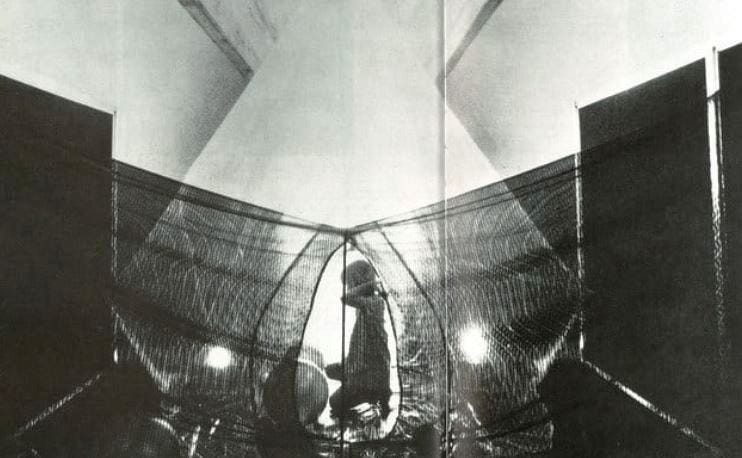
Here, Ana Minozzo explores the possibilities of an encounter with the Real as a sphere of excessive affect in psychoanalysis, and terms this meeting a ‘vibration’. Situating this enquiry within the art practice of Brazilian artist Lygia Clark, the book utilises vibration as a conceptual artifice when considering affects, their ethical horizons and a psychoanalytic possibility for creating new ways of living.
This book offers exciting new perspective on anxiety for students, clinical trainees, art and humanities researchers and practitioners and those interested in psychoanalytic ideas in general.
During the launch, the book was recommended as a psychosocial composition at its best, in commentaries by psychoanalyst Raluca Soreanu, philosopher Rodrigo Nunes, psychosocial thinker Stephen Frosh and psychoanalyst Kati Gray. You can read a fuller account on the FreePsy website: More »
The FREEPSY team congratulates Ana and warmly recommends this important publication!
You can download it here, in Open Access, from Palgrave’s webpage.
Other Recent Publications
Ana Tomcic: Psychoanalysis at Hawkspur Camp and Other Therapeutic Communities for Antisocial Children and Young People in Psychoanalysis and History Volume 26 (2024): Issue 2 (Aug 2024)
Ivan Ward: Reflections on the object of racism in Journal of Psychosocial Studies Volume 17 (2024): Issue 2 (Aug 2024): Themed section: Racism, hatred and melancholic curiosity
Open Access articles from the Themed Section of the Journal Here
Studio Visit with artist-researcher Ana Čvorović
October 7, 2024
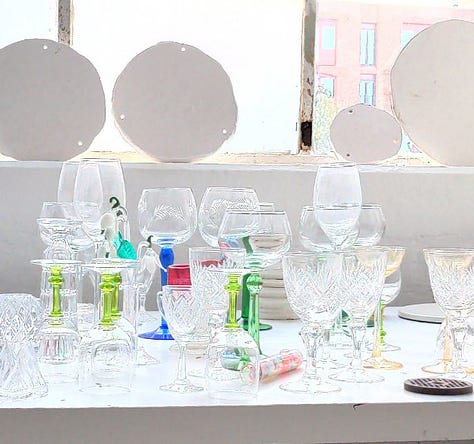
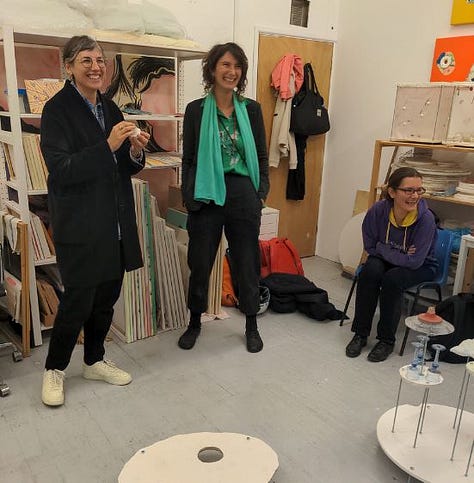
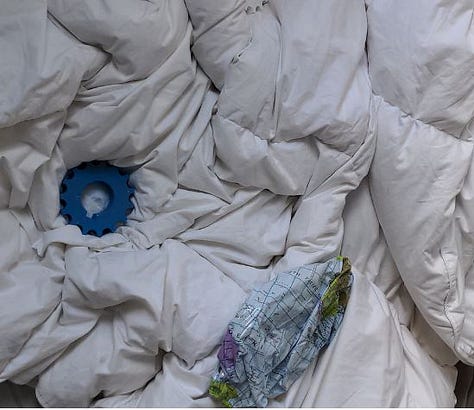
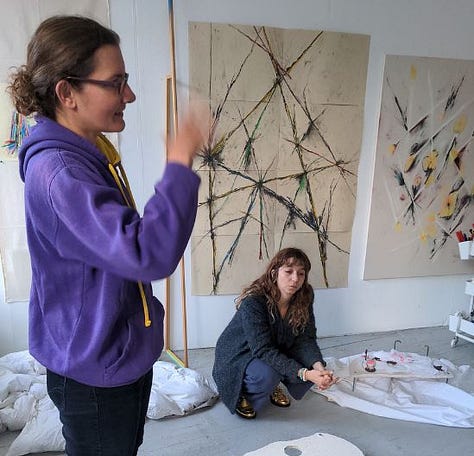
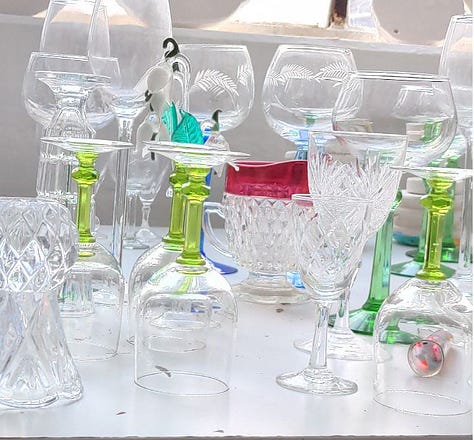

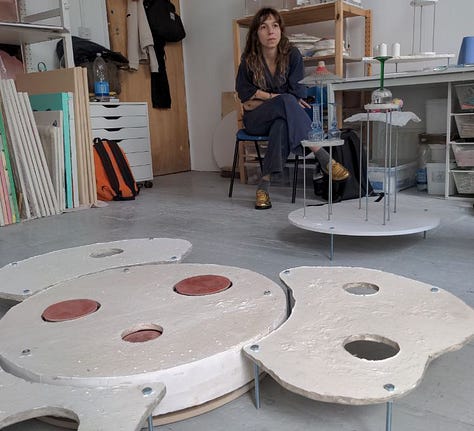

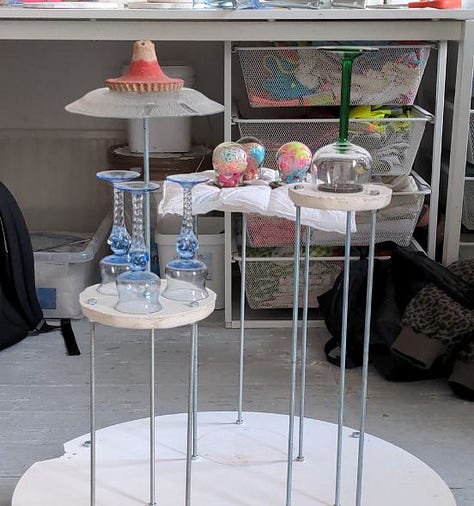
Members of the FreePsy team went to the studio of artist-researcher, Ana Čvorović, to see her latest work. Ana explained the thinking behind the new pieces, which will form part of the exhibition at the upcoming conference ‘Psychoanalysis and Radical Psychiatry’. It was an inspiring, rich and stimulating visit, as the photographs amply show!
Free Clinics Network
The Free Clinics Network brings together clinical institutions and practitioners around the world involved in offering free or low-cost psychoanalysis. The Free Clinics Network is relevant to both patients and psychoanalysts globally, aiming to promote shared practices among the clinicians and to widen access to psychoanalytic treatment.
In the Free Clinics Network, and in the context of the FREEPSY project, patients are regarded as co-creators of a context of care, and not ‘service users’. Psychoanalytic and other mental health practitioners are refigured as contributors to collective action and collective creativity, not ‘mental health providers’.
If you are an analyst working for an organisation providing free or low-cost psychoanalysis, please consider filling in the form below and become part of the network. Please share this information as widely as possible with your colleagues, patients and anyone else who might be interested.
Please fill in the Free Clinics Form to become a part of our Network.
But wait: a psychoanalysis for the people? For whom else would it be, or to whom else would it possibly belong? Why was psychoanalysis invented if not to care for the speaking subject, each speaking subject, in their fragile existence between the singularity of a lived experience and the universality of our being? Chris Chamberlin, FreePsy launch
Thank you for reading!






